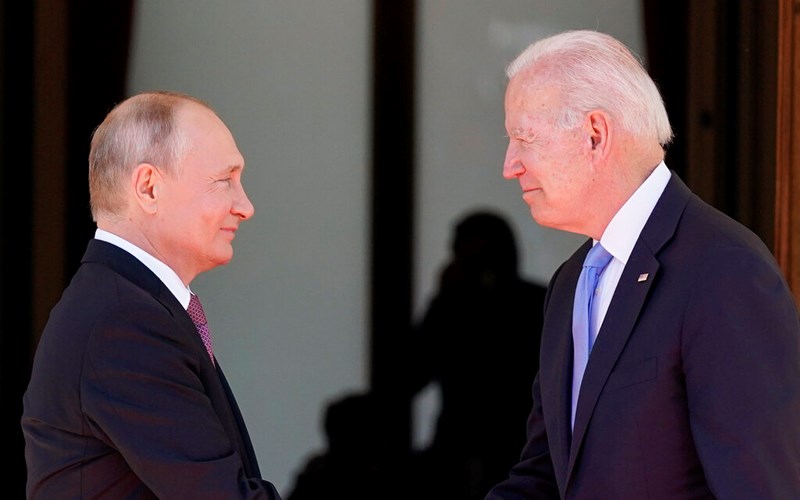When Vladimir Putin launched his invasion of Ukraine, the Russian leader determined that the potential cost of invading the Eastern European country was something he could tolerate – so says retired U.S. Navy Commander Kirk Lippold. And when President Joe Biden said U.S. troops would not be deployed to Ukraine, Lippold adds, it solidified Putin's calculations; and moreover, Biden's sanctions appear to have done little to slow the Russian advance.
The retired Navy officer argues that in order for deterrents to work, two key components must be present: capability and credibility.
"Number one is the capability – the economic and military ability – to contain a threat and to be able to destroy it at will," the retired Navy officer tells AFN. Capability essentially allows the United States to "hold nations at risk," he says. And in the current environment, not only holding Russia at risk but also China as it presses into Taiwan, Lippold adds.

"But there's a flip side of the coin," he admits. "[A country must] have the credibility they are willing to use [their capability] in order to defend national security interests and freedom."
Without the presence of both components to deter dangerous, authoritarian regimes, he says "one might as well drop the mic, walk off the stage, and give up."
Lippold points out the U.S. is being "fundamentally challenged on multiple fronts at the same time." He cites as examples the growing pressure in Europe, the South China Sea, and the Middle East.
"The American people need to be pushing President Biden and the administration to do more," he asserts. "If you assume a leadership role [like the president of the United States], it means you have to occasionally flex your power.
"You flex it economically so that people understand that you have the capability to act; and you flex it militarily by building a force that's able to do what's necessary and showing some muscle when it's required," Lippold concludes.







